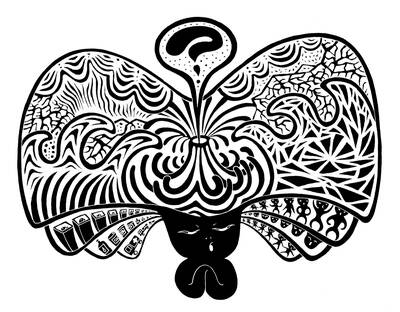Taiwan has been given several doses of confidence in international rankings about its level of freedom. The improved performance might have allowed the people and leaders of the nation to celebrate World Press Freedom Day on Wednesday, but has the nation really become freer?
On July 15, the country is to mark the 30th anniversary of the lifting of martial law, which lasted from May 1949 to July 1987 and is, thus far, the longest period of martial law the world has seen.
During that dark period, thousands of Taiwanese were jailed, tortured, made to disappear or executed for saying or printing things that displeased dictator Chiang Kai-shek (蔣介石) and later his son. People that escaped state violence understandably remained silent out of fear for their personal safety.
Taiwan’s civic and political freedom has surged since the end of martial law, the subsequent lifting of newspaper limitations in 1988 and the 1992 revision of Article 100 of the Criminal Code, which originally provided the legal basis for the then-Chinese Nationalist Party (KMT) government to restrict freedom of expression.
There has been an avalanche of news outlets and political talk shows critical of the government. Reports compiled by international watchdogs have also taken an optimistic view on the development of the nation’s democracy and human rights.
In February, news about Taiwan outperforming several of its Western and Asian partners, such as the US, France and South Korea, in Washington-based Freedom House’s latest Freedom in the World report made front pages. Taipei also saw a rise in its overall score from 89 out of 100 last year to 91 this year.
Last month, Reporters Without Borders announced its choice of Taipei over Hong Kong for its first office in Asia, citing concerns about Chinese threats to the territory’s press freedom
A few weeks later, the Paris-based media watchdog published its World Press Freedom Index, which moved Taiwan’s ranking up six places to 45 out of 180 nations, making it home to the freest media environment in Asia.
The outlook seems optimistic if only the most recent international ratings are considered. It might be less bright looking further back or at the bigger picture.
In April 2008, just a month before former president Ma Ying-jeou (馬英九) was inaugurated, Taiwan jumped to its highest ranking in Freedom House’s Freedom of the Press report since 2004, at 32nd.
However, Ma’s China-centric policy significantly increased Taiwan’s economic dependence on China, prompting many media outlets that lacked sufficient financial backing to self-censor and tone down criticism of Beijing to attract advertisements.
China-friendly Taiwanese businesspeople’s increasing control of news media has sped up a worrying trend in the nation’s media freedom.
As a result, Taiwan’s media freedom rating in the 2009 Freedom House report plunged to 43rd, and it was ranked 47th and 48th for years until it climbed back up to the 44th position last year and to 39th this year.
Several high-profile figures have voiced concern about self-censorship, including then-Freedom House president Mark Lagon in February last year, in an interview with the Taipei Times and its sister paper, the Chinese-language Liberty Times.
Unfortunately, the problem is still there and might get worse as the Chinese government carries on with its carrot-and-stick approach to Taiwanese corporations, businesspeople and media outlets, and as it becomes increasingly hard for news publications to stay afloat.

Labubu, an elf-like plush toy with pointy ears and nine serrated teeth, has become a global sensation, worn by celebrities including Rihanna and Dua Lipa. These dolls are sold out in stores from Singapore to London; a human-sized version recently fetched a whopping US$150,000 at an auction in Beijing. With all the social media buzz, it is worth asking if we are witnessing the rise of a new-age collectible, or whether Labubu is a mere fad destined to fade. Investors certainly want to know. Pop Mart International Group Ltd, the Chinese manufacturer behind this trendy toy, has rallied 178 percent

Life as we know it will probably not come to an end in Japan this weekend, but what if it does? That is the question consuming a disaster-prone country ahead of a widely spread prediction of disaster that one comic book suggests would occur tomorrow. The Future I Saw, a manga by Ryo Tatsuki about her purported ability to see the future in dreams, was first published in 1999. It would have faded into obscurity, but for the mention of a tsunami and the cover that read “Major disaster in March 2011.” Years later, when the most powerful earthquake ever
My youngest son attends a university in Taipei. Throughout the past two years, whenever I have brought him his luggage or picked him up for the end of a semester or the start of a break, I have stayed at a hotel near his campus. In doing so, I have noticed a strange phenomenon: The hotel’s TV contained an unusual number of Chinese channels, filled with accents that would make a person feel as if they are in China. It is quite exhausting. A few days ago, while staying in the hotel, I found that of the 50 available TV channels,
Chinese intimidation of Taiwan has entered a chilling new phase: bolder, more multifaceted and unconstrained by diplomatic norms. For years, Taiwan has weathered economic coercion, military threats, diplomatic isolation, political interference, espionage and disinformation, but the direct targeting of elected leaders abroad signals an alarming escalation in Beijing’s campaign of hostility. Czech military intelligence recently uncovered a plot that reads like fiction, but is all too real. Chinese diplomats and civil secret service in Prague had planned to ram the motorcade of then-vice president-elect Hsiao Bi-khim (蕭美琴) and physically assault her during her visit to the Czech Republic in March last